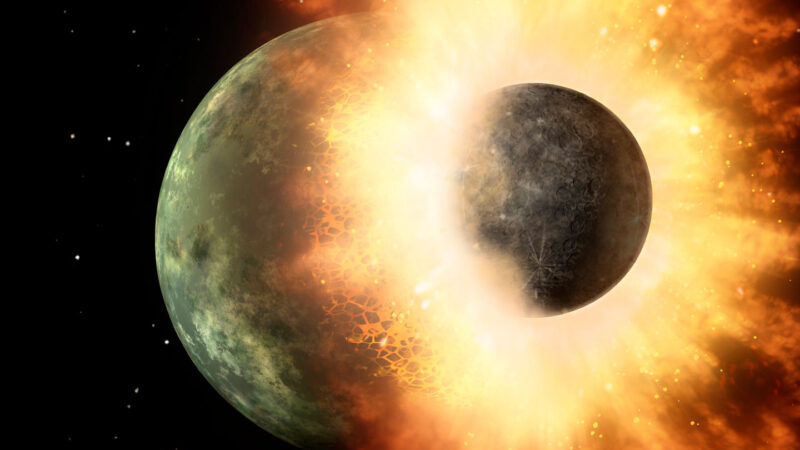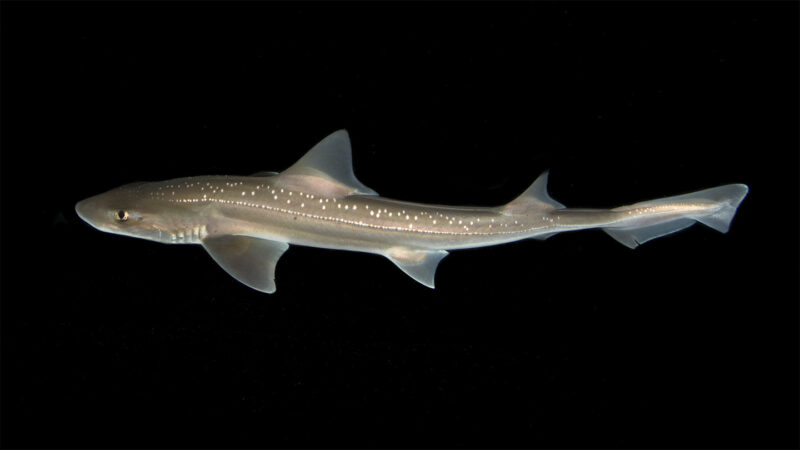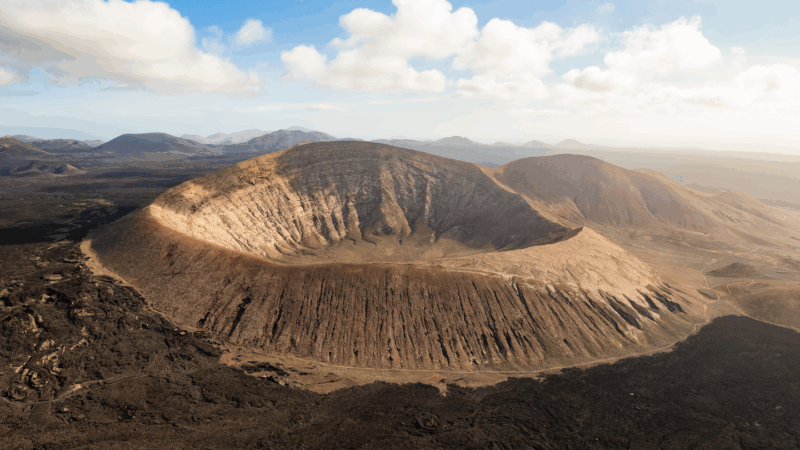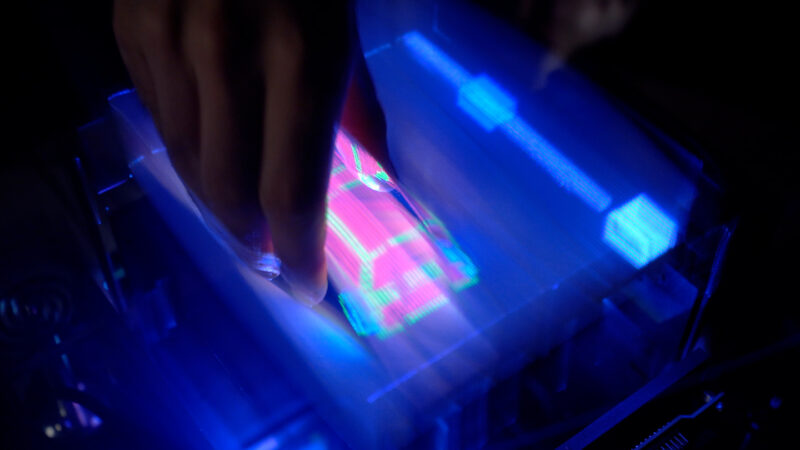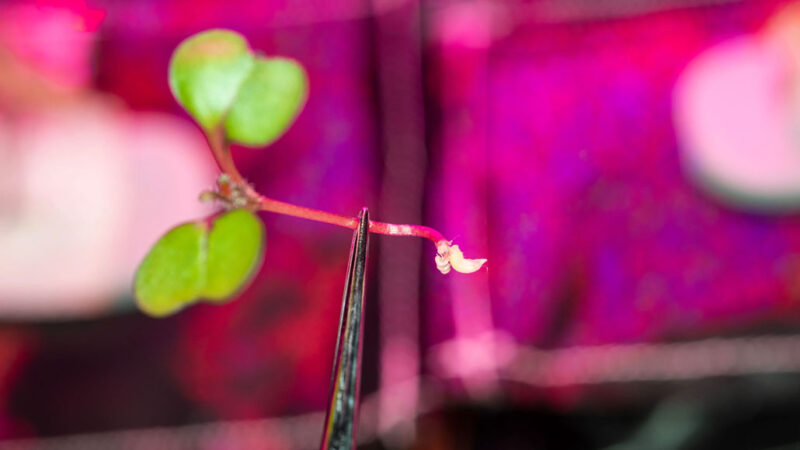Theia (noun, “THAY-ah”)
Theia is a planet-sized object that scientists think collided with Earth about 4.5 billion years ago. When Theia smashed into a young Earth, it would have blasted fragments into orbit. And those fragments could have clumped together, forming our moon. This scenario is known as the giant impact theory.
The name Theia comes from Greek mythology. Theia was a goddess who gave birth to Selene, the goddess of the moon.
Scientists estimate that Theia’s mass, before the collision, was between 10 to 45 percent of Earth’s mass. If this collision occurred, what happened to Theia? Could it have vaporized on impact? Or could Theia and Earth have fused?
It looks like the second idea might be what happened. Decades ago, scientists discovered two giant, blobby clumps of metal deep under Earth’s crust. These blobs lurk under the Pacific Ocean and Africa. Scientists now think these blobs could be what’s left of Theia, entombed in the Earth’s lower mantle.
Computer models support this connection between Theia and the blobs. And there’s more. The giant impact theory says the Theia-Earth smashup may have kick-started plate tectonics. Plate tectonics explains why and how Earth’s crust changes over time. No other rocky planet in our solar system appears to have this feature.
Isotope data also supports the giant-impact theory. Isotopes are atoms of the same element with slightly different masses. Typically, elements exist in various isotopes — common isotopes and rare ones. And scientists have found that Earth and the moon share similar ratios of common and rare isotopes. This hints that the Earth and moon may have come from the same material.
The giant-impact theory also may explain why the moon contains less iron than similar objects. Earth’s core contains a lot more iron than Earth’s crust. If the moon came from blasted pieces of Earth’s crust, that would explain why the moon is made of lighter elements.
In a sentence
Astrophysicists suspect the moon formed from an ancient collision between Theia — an early planet — and early Earth.

